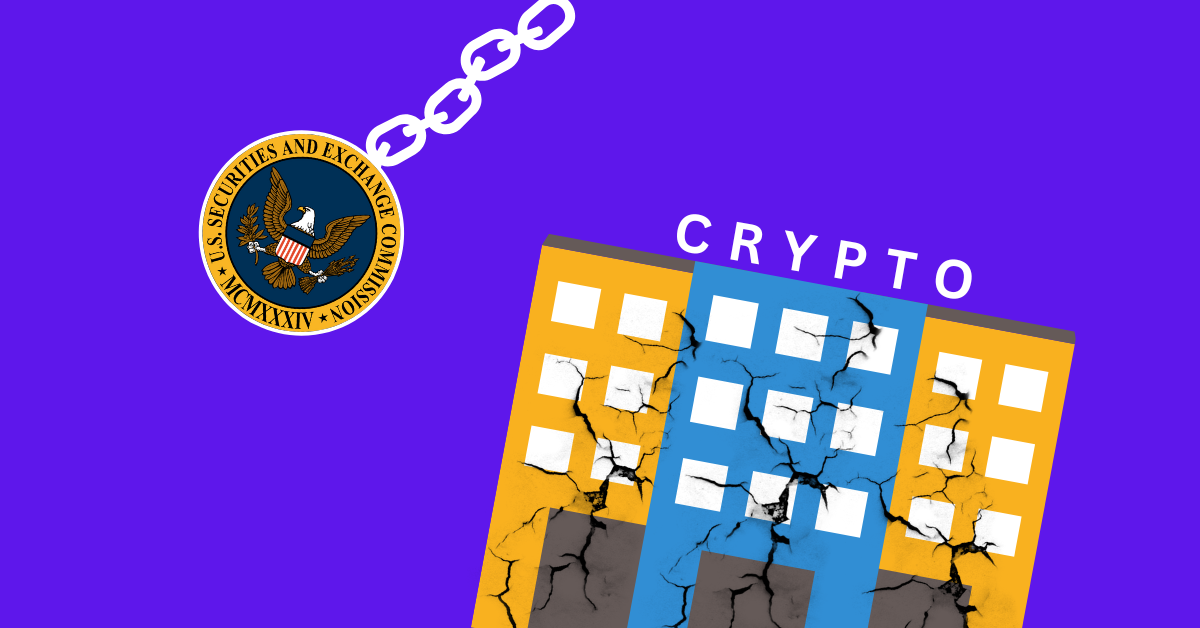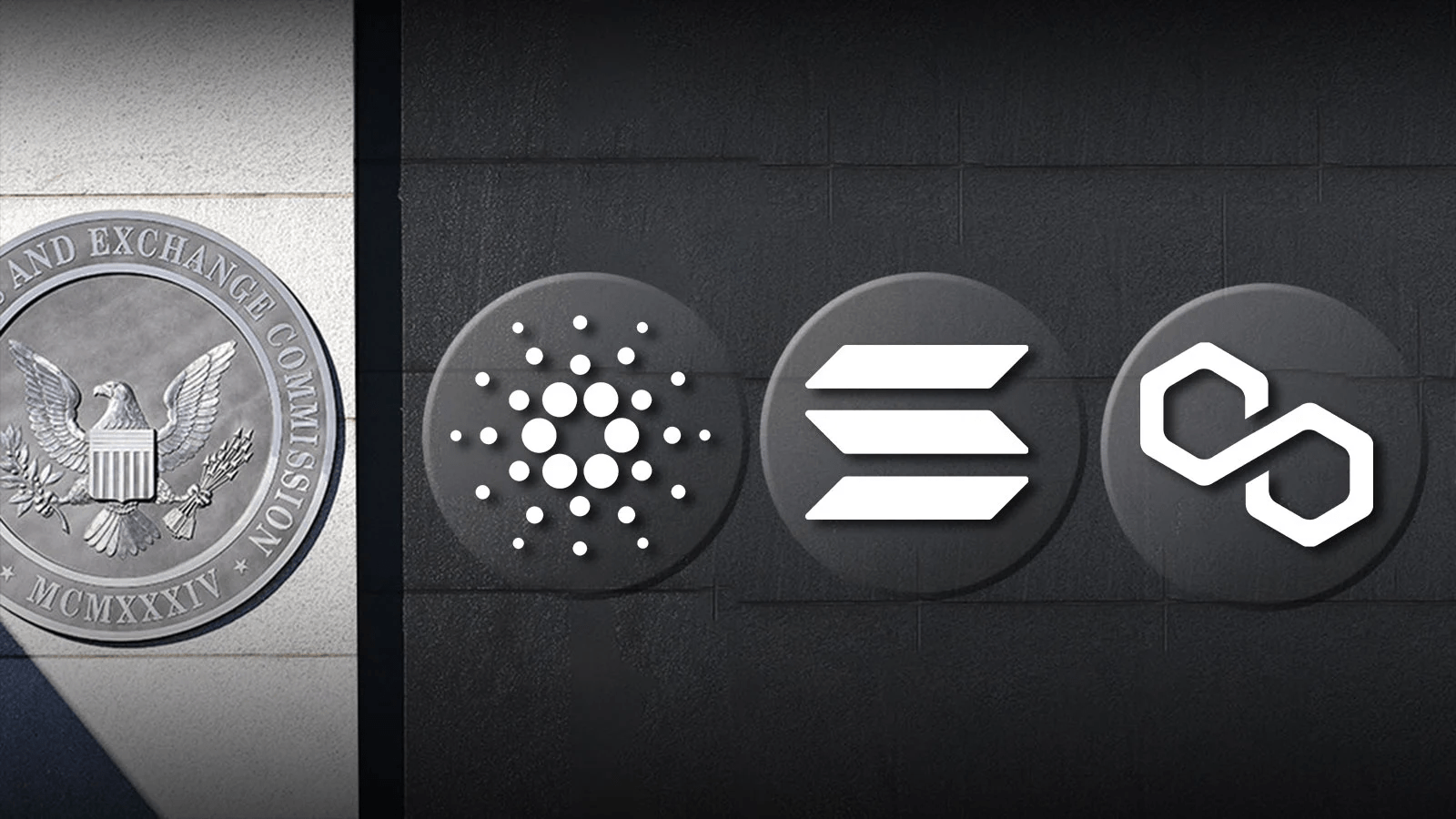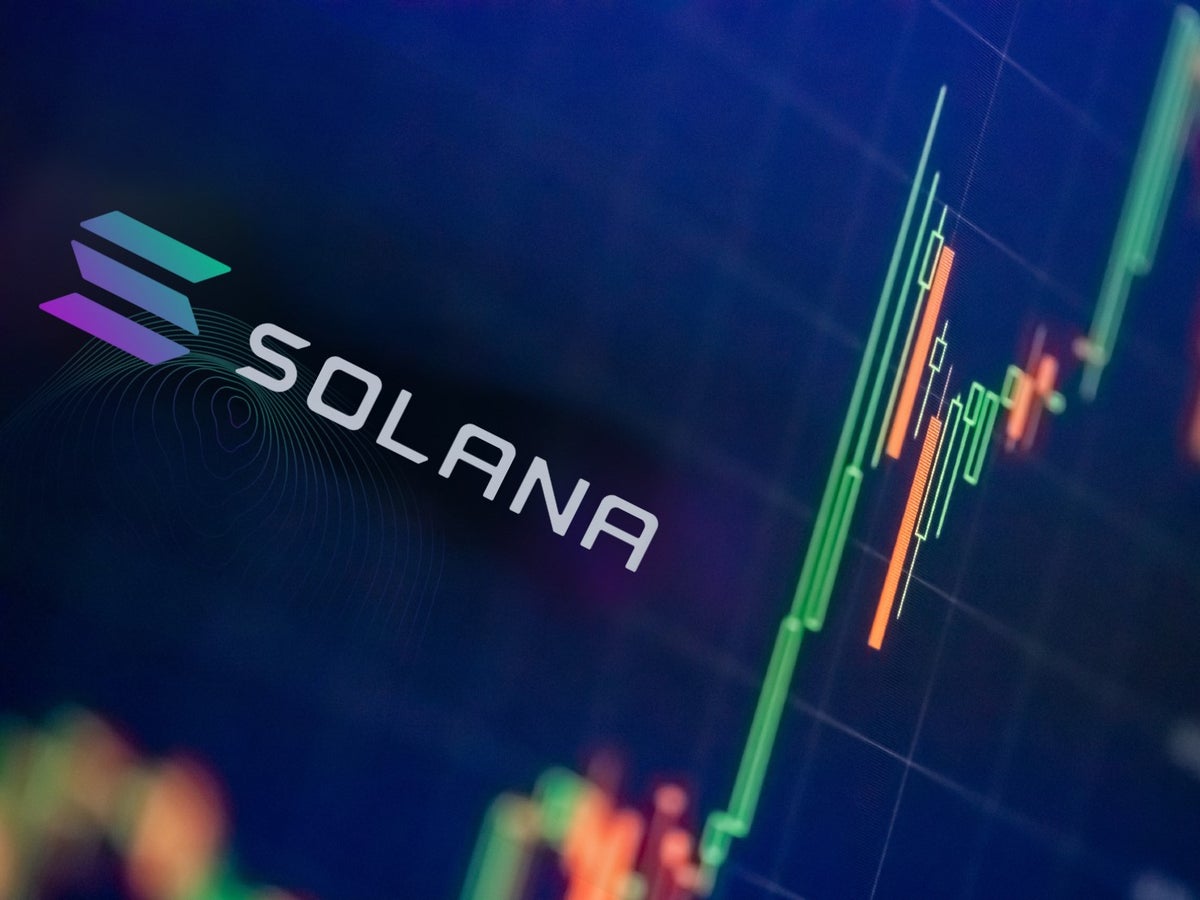Join Our Telegram channel to stay up to date on breaking news coverage
In a recent turn of events, Solana’s SOL, Cardano’s ADA, and Polygon’s MATIC experienced a sudden sell-off over the weekend, causing concern among investors. However, Monday brought a glimmer of hope as prices stabilized and some of the losses were reversed, much to the delight of the investors.
Solana, Cardano, and Polygon Face Sell-Off, Find Stability Amidst SEC Allegations
SOL saw a 2.2% rise, ADA experienced a 3.5% increase, and MATIC surged by an impressive 5.5%. The futures data indicated low open interest and liquidations, suggesting that spot trading was the driving force behind this movement.
The developer foundations associated with these tokens took individual stands against the allegations made by the U.S. Securities and Exchange Commission (SEC) in recent days, which likely played a role in boosting investor confidence.
The Solana Foundation, for instance, made it clear that it does not consider SOL to be a security, with developers expressing that development on the Solana network would not decline in the coming weeks.
Similarly, IOG, the Cardano developer, countered the SEC’s lawsuit, highlighting “numerous factual inaccuracies” and emphatically stating that ADA was never deemed a security. Polygon Labs also defended MATIC, emphasizing that it was developed and deployed outside the U.S. and made available to a wide group of individuals without specifically targeting the U.S.
Adding to the mix, the SEC accused major crypto exchanges Binance and Coinbase of various charges related to offering unlicensed securities to U.S. investors, including naming specific tokens as securities.
Tokens such as Sandbox (SAND), Filecoin (FIL), Axie Infinity (AXS), Chiliz (CHZ), Flow (FLOW), Internet Computer (ICP), Near (NEAR), Voyager (VGX), Dash (DASH), and Nexo (NEXO) were among those listed.
The effect of these developments was evident on Saturday when SOL, ADA, and MATIC experienced significant price drops of up to 30%.
On-chain data suggested that trading companies Jump Trading and Cumberland sent millions of dollars worth of MATIC to exchanges just before the drop, indicating that investors were selling tokens named in the SEC filings. Surprisingly, Bitcoin (BTC) and Ethereum (ETH) experienced relatively smaller declines of up to 4.5% during this unusual turn of events.
Organizations Defend Against SEC Allegations, Asserting Tokens’ Non-Security Status and Market Impact
To address the SEC’s claims, the organizations behind Solana, Polygon, and Cardano have openly voiced their opposition. They expressed disagreement with the SEC’s classification of their tokens as securities.
The tokens mentioned are ranked within the top 20 by market cap and hold a total market capitalization exceeding $21 billion, which amounts to 1/10th of Ethereum’s total value.
Over the past week, these three tokens witnessed a significant drop of approximately 30%. However, they managed to recover partially on Sunday, albeit only regaining a small portion of their losses.
Input Output Global (IOG), the organization behind Cardano, took the initiative to uphold the legal standing of ADA, while emphasizing that it has never been classified as a security according to U.S. securities law. IOG confidently asserted that its operations would remain unaffected by the SEC’s lawsuits, and it expressed a readiness to cooperate with regulators to promote transparency and assurance within the crypto industry.
Other Developments
In a similar vein, the Solana Foundation, a non-profit based in Switzerland dedicated to Solana, conveyed its disagreement with the characterization of SOL as a security. The foundation emphasized its commitment to working with regulators, addressing the need for regulatory clarity in the digital assets space.
Meanwhile, discussions have emerged within the Solana community regarding the possibility of forking Solana, similar to Ethereum’s response after The DAO hack in 2016. Some community members believe forking Solana could mitigate the potential impact of FTX’s bankruptcy, where a massive chunk of Solana tokens owned by Alameda Research, the trading firm of former FTX CEO Sam Bankman-Fried, might flood the market in the coming years.
On Twitter, Polygon Labs emphasized the international reach of the Polygon network, separating MATIC from U.S. markets without directly referencing the SEC. They underscored the token’s role in securing the network and clarified that MATIC was accessible to a diverse range of users, without any specific focus on the U.S. This stance potentially opens up the possibility of a legal discussion on jurisdiction surrounding MATIC.
The recent SEC lawsuits against Binance and Coinbase have prompted the trading app Robinhood to announce the discontinuation of support for Solana, Polygon, and Cardano. The lawsuits have created uncertainty surrounding these cryptocurrencies, potentially leading other companies to follow suit. However, the organizations behind each token are actively working to clear their currencies’ names and restore investor confidence in the midst of this situation.
Related News
Best Wallet - Diversify Your Crypto Portfolio
- Easy to Use, Feature-Driven Crypto Wallet
- Get Early Access to Upcoming Token ICOs
- Multi-Chain, Multi-Wallet, Non-Custodial
- Now On App Store, Google Play
- Stake To Earn Native Token $BEST
- 250,000+ Monthly Active Users
Join Our Telegram channel to stay up to date on breaking news coverage




